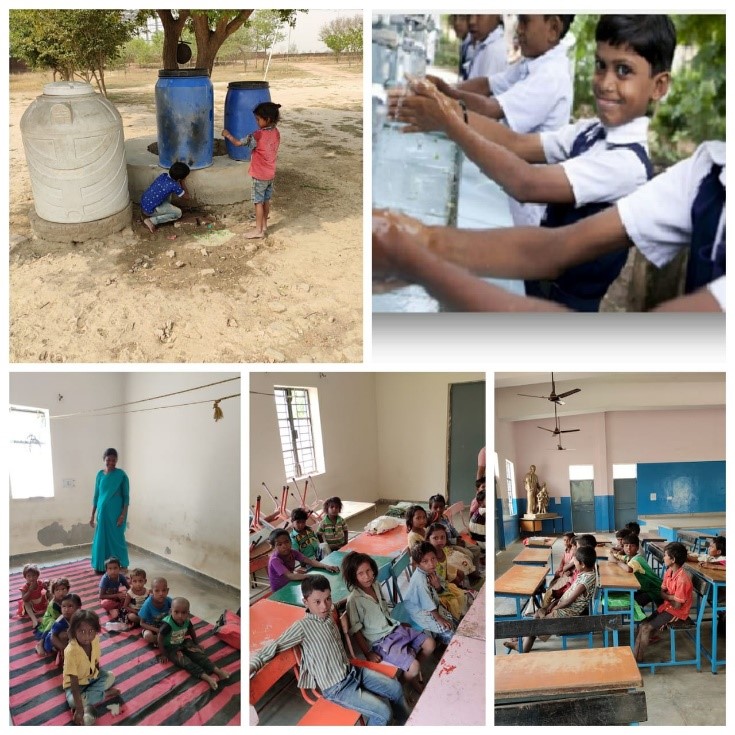Disaster Response
Ekta Foundation during COVID-19
Data has shown that it spreads from person to person among those in close contact (within about 6 feet, or 2 meters). The virus spreads by respiratory droplets released when someone with the virus coughs, sneezes or talks.
It can also spread if a person touches a surface with the virus on it and then touches his or her mouth, nose or eyes.
The stringent lockdown enforced by the Centre is likely to push 40 crore workers of the informal sector deeper into poverty in India, the International Labour Organisation (ILO) said in its latest report released on 08/04/2020
In India, with a share of almost 90 per cent of people working in the informal economy, about 400 million workers are at risk of falling deeper into poverty during the crisis,” the ILO said in the report, titled ‘COVID-19 and the world of work’.
Ekta Foundation’s interventions:
Government schools serve the majority of children in our country. These schools witness a decline in their services, and increasingly they are accessed by the poor and the marginalized. Across India, a handful of committed individuals have led efforts to improve government schools, in the belief that they could demonstrate or induce an enduring change in the system.
Water, Sanitation facilities and hygiene practices in healthcare facilities and birthing spaces are essential to prevent maternal and new-born deaths and illness from infections. However, it is estimated that 38% of healthcare facilities (HCF) in low- and middle-income countries do not have an improved water source, even more do not have basic, private toilets and a way to wash hands with soap. In India, water and sanitation coverage in health facilities is estimated to be 72% and 59% respectively. This puts patients and healthcare workers at unacceptable risk of infection, including some of the most vulnerable members of society – new mothers and their new born.
It is found that while most communities had water, the area surrounding the water source were dirty; there were signs of open defecation around the facilities suggesting that toilet facilities were either lacking on not functional; there was poor solid and liquid waste management; hand washing stations were poorly maintained and many were dysfunctional; and policies on infection control practices were lacking or poorly implemented in many facilities.
About 1.8 million children under the age of 5 die each year from diarrheal diseases and pneumonia, the top two killers of young children around the world.
- Handwashing with soap could protect about 1 out of every 3 young children who get sick with diarrhea and almost 1 out of 5 young children with respiratory infections like pneumonia
- To create awareness about prevention, hygiene, social distancing, isolation & combating stigma
- Setting up community kitchen for construction workers & urban poor families
- Support for distribution of PPE & protective provisions
- Sanitizers, soap, mask, glove etc for community workers & volunteers
- Support isolation center

